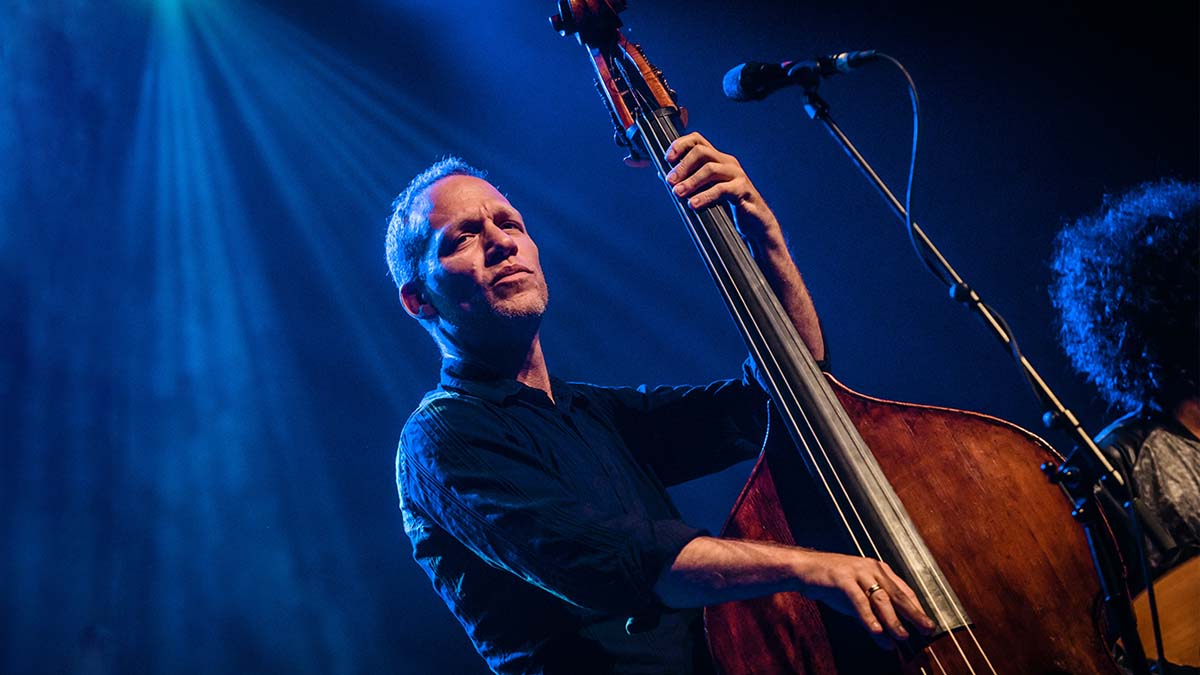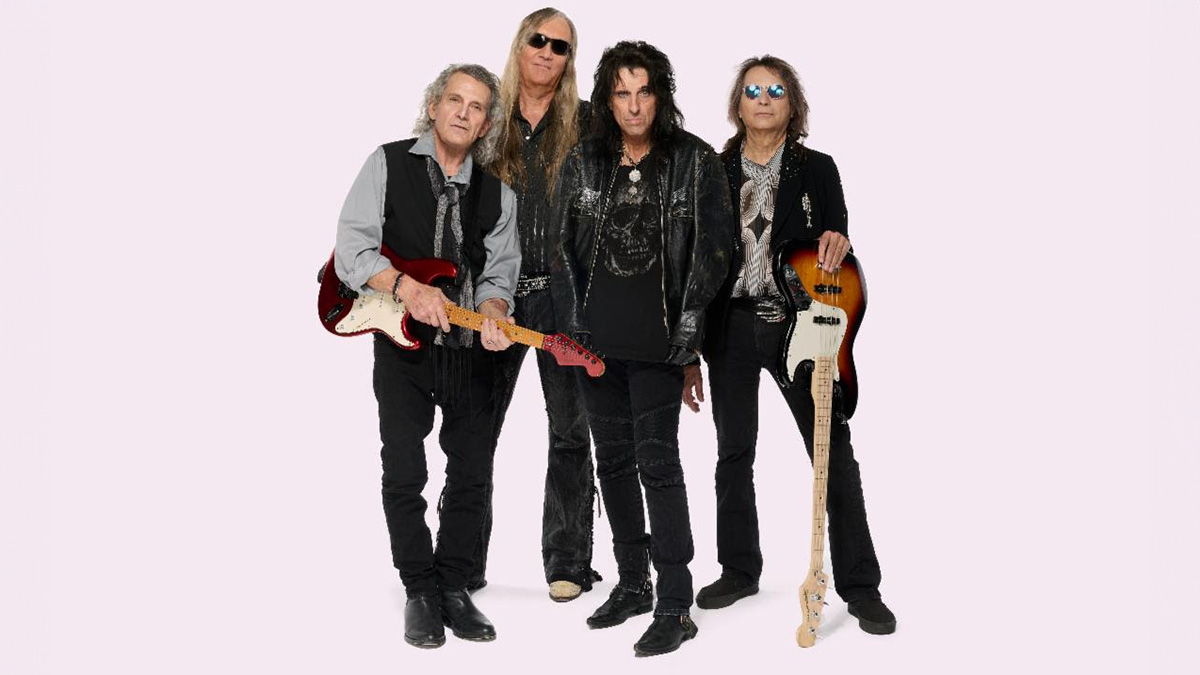Avishai Cohen: “The bass is my closest musical partner. I’ve explored and developed my own way of playing and performing with it over the years”
With his new album, Two Roses, the Israeli upright bassist achieves a career high. We meet the master...

Born in Israel in 1970 and living in St. Louis, Missouri as a teenager, Avishai Cohen was introduced to the world of bass by the music of Jaco Pastorius. After studying at the Music and Arts Academy in Jerusalem, he moved to New York City in 1992, where he continued to study and performed with the Panamanian pianist Danilo Pérez.
By ’97 he was a member of Chick Corea’s New Trio and a co-founder of Corea’s ensemble, Origin, where he remained for six years. A series of acclaimed solo albums followed, with this magazine numbering him in a poll of 100 Most Influential Bass Players of the 20th Century, and he has worked in collaboration with over 25 orchestras.
In 2020, Cohen planned to play 50 concerts in 50 cities to celebrate his 50th year, although the pandemic put paid to most of those dates. Instead, he recorded new music with the Gothenburg Symphony Orchestra, for an album, Two Roses, out now.
What are you up to, Avishai?
“I’m continually writing new music, including scores for several movie and TV projects, while I await the return of some sort of normality in the world.“
Tell us about Two Roses.
“I have always felt a sense of classical music and jazz when I write and arrange. My mother and father listened to many old Israeli folk songs and Ladino songs, but also classical pieces, so these sounds have always been around me. It comes out in my music quite naturally.
Get The Pick Newsletter
All the latest guitar news, interviews, lessons, reviews, deals and more, direct to your inbox!
"This was the approach on my 2014 album Almah, my first steps, and over the years I developed my live program, An Evening With Avishai Cohen. As this new repertoire grew, I felt there was a need to record this music with a great orchestra.“
How did you go about creating the music?
“The compositions and arrangements came over many years. For example, I rearranged a song Hayo Hayta, which worked very well for strings and oboe on my Almah album. Some of the older tunes and folk songs were introduced to me when I was younger, and made an impression on me.
“One of the driving forces and ultimate tipping points of the initial assignment was to get deeper and deeper into it, and within a few years this incredible body of work was ready to be performed and recorded. Along the way I engaged several wonderful arrangers and orchestrators connected to the classical world, working closely with them day by day, such as Robert Sadin, Jonathan Keren and Per Ekdahl, themselves great musicians in their own right.“
What inspired the new compositions?
“Two Roses is a reflection of where I am now, as well as where I have been. I’ve been touring and performing this project live with many orchestra partners for several years. It was time to document the music and introduce new compositions and new arrangements to the mix.
“Two Roses is a metaphor for two natural and similar elements to come together as one. As the lyrics of the title song say, there is one red rose and one white, equal to each other, but different. The album is a collaboration which creates and produces a whole world of sound, and tells a story from the first to the last.“
Run us through the gear you used to record.
“My performance bass for many years, and on this recording, has been a three-quarter-sized German Greshner upright, built around 1910, mounted with Thomastik Spirocore strings. The mic setup is a mix of what we use for my live performances, plus an additional microphone for the recording. It’s a combination of a David Gage Realist pickup, an Ischell contact mic, a Schoeps mic mounted on the bridge, and a Microtech Gefell mic.“
Who are your influences on bass?
“At the age of nine I started playing the piano. I was inspired by Jaco Pastorius when I first heard his music, and I picked up the electric bass at age 14. I was always going to move to the acoustic upright, but I came to it late, at around the age of 20. I guess that was when I found the confidence to take on the challenge and embrace this unique instrument.
“The bass has been my closest musical partner ever since. I’ve explored and developed my own way of playing and performing upfront with it over the years. I’ve also been an admirer of classical composers since day one.“
Are you pleased with the new album?
“I am very happy with the tracks and the recording for many reasons. It’s been the most amazing project and recording to date for me – a project of a lifetime. It truly reflects where I am and where I’ve been with my work and my writings over many years.
“I’m also specifically very happy with the arrangements: Integrating my trio with orchestra has been a dynamic and soulful process for me, alongside trusting so many people with the final recording. It’s a project that has been developing in my mind for a long time – and I’m proud and happy with the outcome. It’s a project I will have with me for the rest of my life.“
- Two Roses is out now via Naive.
Bass Player is the world’s most comprehensive, trusted and insightful bass publication for passionate bassists and active musicians of all ages. Whatever your ability, BP has the interviews, reviews and lessons that will make you a better bass player. We go behind the scenes with bass manufacturers, ask a stellar crew of bass players for their advice, and bring you insights into pretty much every style of bass playing that exists, from reggae to jazz to metal and beyond. The gear we review ranges from the affordable to the upmarket and we maximise the opportunity to evolve our playing with the best teachers on the planet.
“When I first heard his voice in my headphones, there was that moment of, ‘My God! I’m recording with David Bowie!’” Bassist Tim Lefebvre on the making of David Bowie's Lazarus
“One of the guys said, ‘Joni, there’s this weird bass player in Florida, you’d probably like him’”: How Joni Mitchell formed an unlikely partnership with Jaco Pastorius





![[from left] George Harrison with his Gretsch Country Gentleman, Norman Harris of Norman's Rare Guitars holds a gold-top Les Paul, John Fogerty with his legendary 1969 Rickenbacker](https://cdn.mos.cms.futurecdn.net/TuH3nuhn9etqjdn5sy4ntW.jpg)





